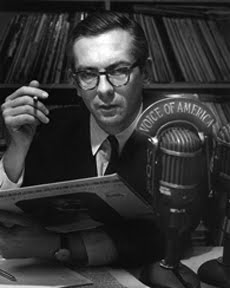Is it important that a president have military experience?
An AP analysis caught my attention in the Rapid City Journal yesterday morning (April 10, 2007). “Few candidates have military record,” read the headline. The piece gave a good synopsis of military experience – more accurately, the lack of it – among presidential candidates.
Apart from John McCain, there’s no real breadth or depth of military experience among the many candidates who’ve already announced for 2008. But just how important is it for a president to have served?
While our constitution gives only Congress the power to declare war, the reality is that there are hundreds of examples where the president has directed our forces in “police actions” and “peace-keeping” missions as Commander-in-Chief of the armed forces.
Of course, the constitution also entrusts the Executive Branch to set foreign policy, but Speaker Nancy Pelosi has demonstrated that the Legislative Branch can also push the envelope in interpreting the constitution. But that’s another issue.
If history is an indication, serving in the military has been a big deal in getting elected over the course of our history – even if it is now falling out of favor.
American Diplomacy editor Henry Mattox cites examples of how most U.S. Presidents have served in the military – but often such service has been fleeting or inconsequential. He points to President James Buchanan, who enlisted as a Pennsylvania volunteer during the War of 1812, but served only a few weeks. Abe Lincoln spent not much more time than that in the Illinois militia during the Black Hawk War of 1832. And Ronald Reagan’s military experience was primarily served in his hometown (Hollywood) assigned to making training films.
Of course, there were the few whose service in uniform is unquestionable, starting with George Washington’s 15 years – all in leadership positions. Fellow professional soldiers who rose to flag rank included Zachary Taylor, Ulysses Grant, and Dwight Eisenhower. Some 20 presidents served during war time, many capitalizing upon that fact in their campaigns. The earliest, perhaps, was William Henry Harrison.
The oldest man ever elected president (he was 68 ), Harrison hearkened back nearly 30 years – when he was a General, and his troops defeated the Shawnee Indians at the Battle of Tippacanoe. The 1840 campaign slogan “Tippacanoe and Tyler, too” was a key factor in his election as president.
Numerous 20th century presidents laid claim to service in war time: Teddy Roosevelt in the Spanish American War, and Harry Truman in World War II. And no fewer than six presidents were able to point to war-time service in the Second World War: Dwight Eisehnower, John Kennedy, Lyndon Johnson, Richard Nixon, Gerald Ford, and George Bush.
But the question remains; how important is military experience?
With burgeoning health care issues, do we look to the medical profession for presidential material? Does it take a teacher to successfully grapple with reforming education? Of course, few things are more important than national security – in which the military plays an integral role.
It seems to me that military service can be helpful, but certainly is not essential. Rather, we should seek intelligent, thoughtful, and decisive individuals to fill the highest office in the land. Those experienced few who have demonstrated their management and leadership capabilities, whether it’s been on the battlefield, in the classroom, or – yes, even on the big screen. Maturity and wisdom will count more than piloting or sharpshooting skills.
But, of course, the military has been a leading arena for developing leadership skills and measuring the worth of a person by his or her abilities and skills. Hundreds of thousands of men and women will attribute their maturity to lesson learned in the service of their country.
Mississippi writer Bill Minor, who served on a Navy destroyer in the South Pacific in World War II, recalled the words of his commanding officer at a reunion of the USS Potter some four decades later.
“I took a group of boys to sea, and they became men.”
To be sure, there are many ways to gain maturity and develop leadership skills, but military experience remains among the best. Military experience can be a plus – but it is not essential – for those who would be president of these United States.
 Several years ago, a group of ladies from a Bible study group at St. Mark's Methodist Church in Brandon, Mississippi, thought it would be a good idea to have a "retreat." The first such gathering of members and spouses was on the Gulf Coast of Alabama. The following year it was in the Smokey Mountains. In subsequent years, gatherings have been at Bed and Breakfast locations throughout the Smokies and the Ozarks. Most of the members of this group have retired and scattered to points as diverse as Georgia, Kentucky, North Carolina, Texas, and South Dakota. A few remain in the Brandon area.
Several years ago, a group of ladies from a Bible study group at St. Mark's Methodist Church in Brandon, Mississippi, thought it would be a good idea to have a "retreat." The first such gathering of members and spouses was on the Gulf Coast of Alabama. The following year it was in the Smokey Mountains. In subsequent years, gatherings have been at Bed and Breakfast locations throughout the Smokies and the Ozarks. Most of the members of this group have retired and scattered to points as diverse as Georgia, Kentucky, North Carolina, Texas, and South Dakota. A few remain in the Brandon area. 


